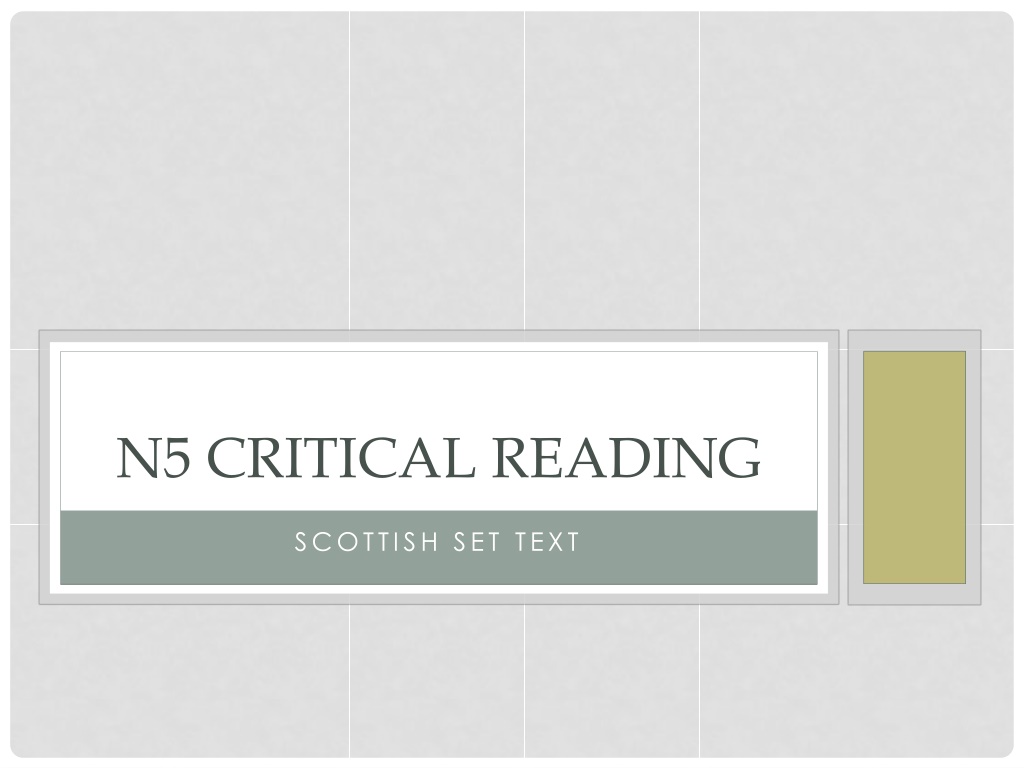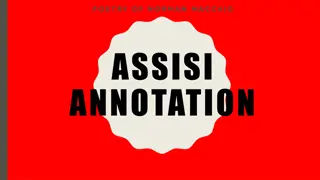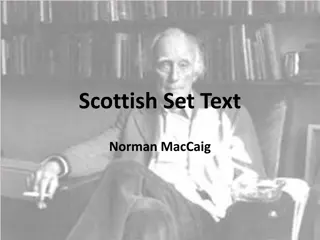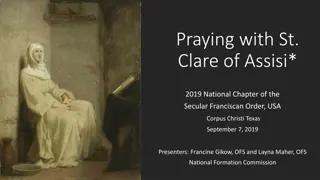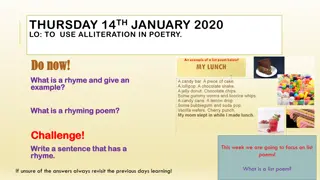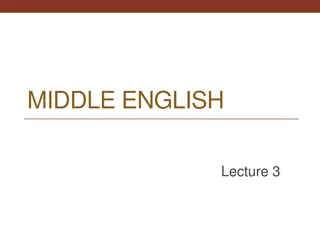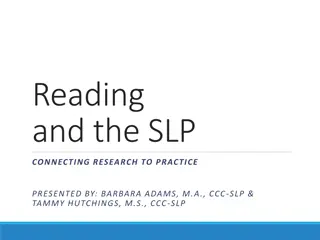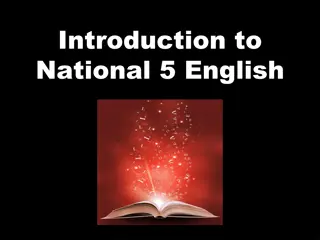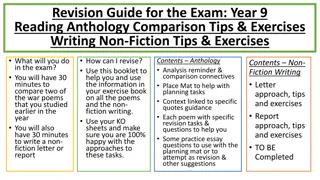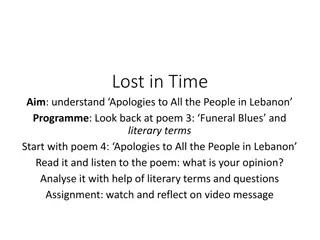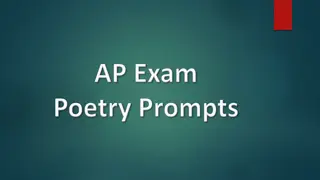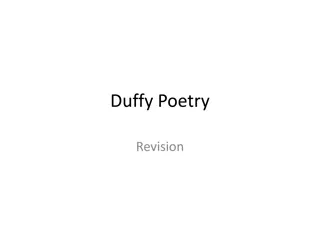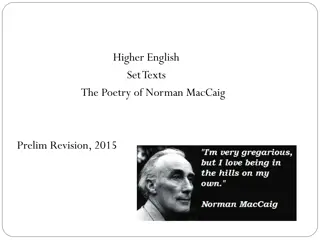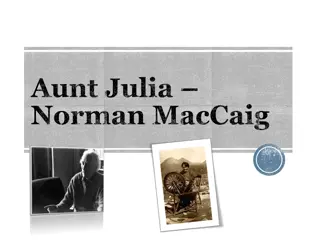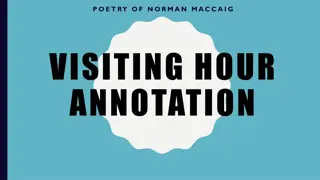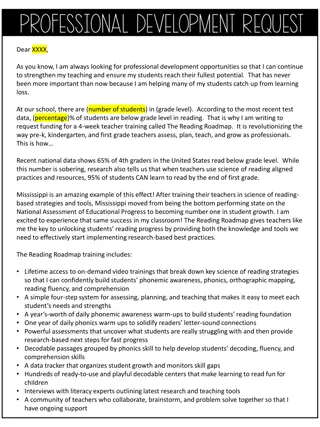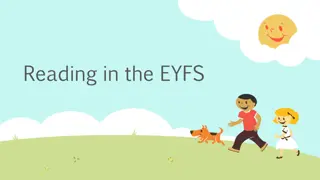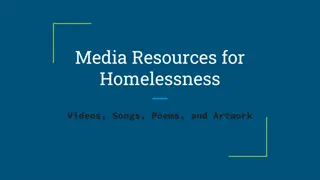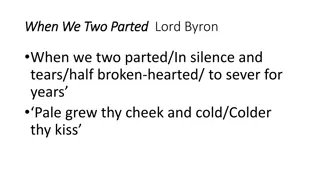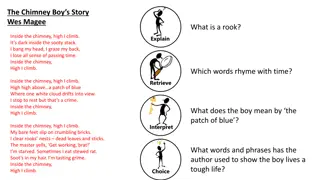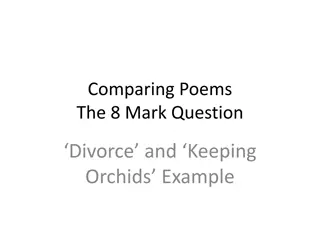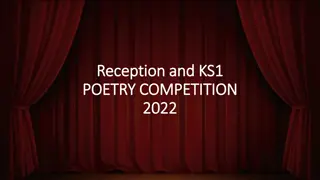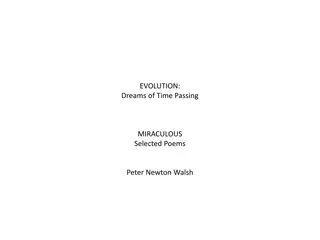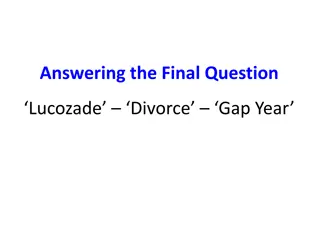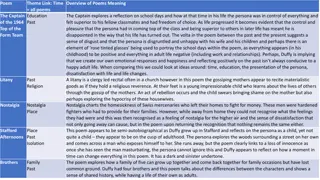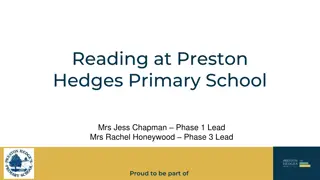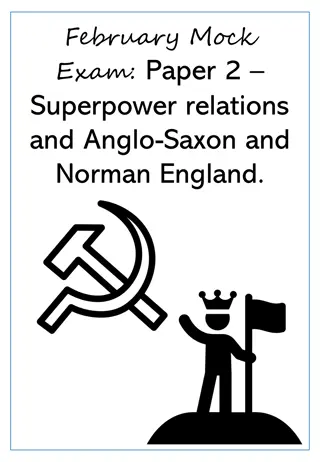Exploring Norman MacCaig's Poems in N5 Critical Reading with a Focus on "Assisi
Dive into the world of Scottish poet Norman MacCaig through an analysis of his poems in the N5 Critical Reading course, particularly focusing on "Assisi." Discover the themes of poverty, hypocrisy, and the contrast between wealth and compassion as depicted in MacCaig's vivid and thought-provoking verses.
Download Presentation

Please find below an Image/Link to download the presentation.
The content on the website is provided AS IS for your information and personal use only. It may not be sold, licensed, or shared on other websites without obtaining consent from the author. Download presentation by click this link. If you encounter any issues during the download, it is possible that the publisher has removed the file from their server.
E N D
Presentation Transcript
N5 CRITICAL READING SCOTTISH SET TEXT
NORMAN MACCAIG For this section of the Nat 5 course we will be studying six poems by the Scottish poet Norman MacCaig. Each poem deals in some way with a personal experience of the poet He describes the experiences and his thoughts, feelings and emotions using very effective structure and language. He uses the poems also to convey wider ideas and themes.
ASSISI The first poem which we will study is called Assisi . Have you ever heard of this place, or anything related to it? Assisi is a town in Italy, famous for being the birthplace of Saint Francis of Assisi. Saint Francis was born in Italy in 1181, and after receiving visions from God, abandoned a life of luxury for poverty, and became devoted to Christianity, and a life of caring for others- the poor, the deformed, lepers He is also renowned for his love of Nature and his apparent ability to talk to the birds.
THE POEM MacCaig wrote this poem about the experience of seeing a poor deformed beggar outside the huge ornate church in Assisi, devoted to Saint Francis.
WHAT IS THE POEM ABOUT It is about the beggar and how deformed and pitiful he is It is also about the church ( the organisation rather than the building) and how hypocritical it is- meaning that the poor beggar should be more important than building a huge church. Saint Francis would have helped the beggar. He would not have been interested in the huge church- he gave up all his own money to be a good Christian.
VERSE ONE Verse one, in lines 1-4 creates a very vivid picture of the beggar as he sits on the steps of the huge church. The dwarf with his hands on backwards sat, slumped like a half-filled sack on tiny twisted legs from which sawdust might run, On your sheet, underline or highlight any similes, metaphors and examples of effective word choice which help to create a picture of the dwarf . Think about the sound of the words too. (Alliteration and onomatopoiea)
WHERE IS THE BEGGAR? outside the three tiers of churches built in honour of St Francis, brother of the poor, talker with birds, over whom he had the advantage of not being dead yet. THINK ABOUT: Why is the word outside important? What does three tiers of churches tell us? Who was the church built in honour of? Why is it important that saint Francis was brother of the poor ? What is the only advantage the dwarf has ? What is the poet s tone in the last two lines?
VERSE TWO A priest explained how clever it was of Giotto to make his frescoes tell stories that would reveal to the illiterate the goodness of God and the suffering of His Son. What is happening here? A priest is explaining to tourists how clever the artist was who painted the pictures on the walls of the church. Why does he think the artist was clever?
VERSE TWO The priest thinks the artist was clever because his paintings allowed the illiterate (people who could not read or write) to understand about the goodness of God, and how much Jesus suffered. MacCaig thinks he is being patronising ( talking down to them). Norman MacCaig disapproves of the priest( and the Church) and what he is saying. I understood the explanation and the cleverness.- this word has connotations of persuasion and trickery
VERSE THREE This verse brings the two aspects of the poem together, and really conveys the themes of the poem: The hypocrisy of the church with their stories about God s goodness, when the priest (who represents the church) is just ignoring the poor beggar outside. He is more concerned with showing off the lovely interior of the church. How the poor and disabled are excluded from society.
THE TOURISTS A rush of tourists, clucking contentedly, fluttered after him as he scattered the grain of the Word. What are the tourists being compared to? What does that tell us about the poet s attitude towards them? Do you understand the reference to the grain of the word ?
A COMMENT ABOUT THE TOURISTS It was they who had passed the ruined temple outside Who are they Who is the ruined temple? Why is the poet making this comment? Why is he using the metaphor ruined temple ?
THE DWARF ..whose eyes wept pus, whose back was higher than his head, whose lopsided mouth said Grazie in a voice as sweet as a child's when she speaks to her mother or a bird's when it spoke to St Francis. We are given a clearer and much more pitiful picture of the dwarf here. What does the poet want us to feel? Notice that this is all one sentence, like a list of all the aspects of the dwarf.
THE CONTRAST ..said Grazie in a voice as sweet as a child's when she speaks to her mother or a bird's when it spoke to St Francis. What is the poet trying to do here by telling us about the voice? Look at the two things he compares it to. What does he want to tell us about the dwarf?
THE DWARF His eyes wept pus Why use the word wept ? What is pus? His back was higher than his head . Can you picture this? He has a lopsided mouth Add these details to what we found out in verse one, and you will have the full description.
THE MAIN IDEAS That The Church - the organisation rather than a specific church is cold and uncaring. It wants people (like the tourists) to listen to their stories about how good God was, but it ( represented by the priest) does not emulate God s goodness. The Church is hypocritical, spending so much money on a huge ornate church, and yet ignoring the poor and disabled. (Represented by the beggar.) Society also ignores the poor/ disabled. They are left outside
